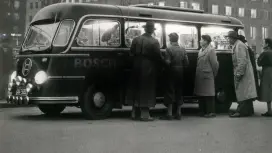Bosch in Spain
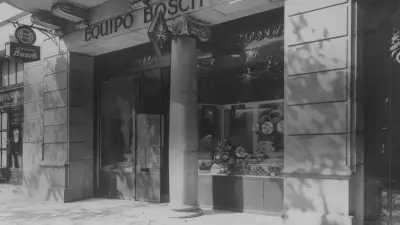
The course of the company’s development in Spain has not always been uncomplicated.
Bosch concluded its first agency agreement with a Spanish company as early as 1908. On September 23, 1926, Bosch established the first enterprise for product sales in Spain. But business relationships had to be rebuilt after each of the two world wars. It was only in the three decades after the Second World War that the company achieved its breakthrough on the Spanish market.
Apart from the establishment of a Bosch production plant in Spain in 1967, factors crucial to this successful development included far-reaching restructuring at the plants and their integration into the manufacturing and logistics network of the Bosch Group in the 1980s.
The early years
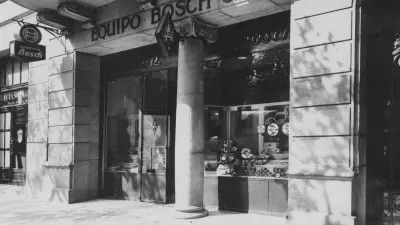
In 1908, Bosch awarded Xaudaró Hermanos in Barcelona the rights to sell its products, thus taking a further step toward its goal of opening up global markets. However, it took some time before sales in Spain got off the ground, as the automotive market on the Iberian Peninsula was still in its infancy. In 1913, the number of cars on the roads there totaled only around 6,000.
Nonetheless, this new means of transport was also becoming increasingly popular in Spain. “We received a telegram on May 16 from our Spanish representative in Barcelona with the good news that there was great demand for our products in Spain.” This message, which appeared in the “Bosch-Zünder” associates’ newspaper in 1919, was really worth mentioning.
First Bosch company in Spain
During the First World War, sales of magneto ignition systems and their installation in vehicles came to a halt on the Iberian Peninsula due to a lack of supplies from Stuttgart. However, Bosch was able to re-establish business relations with Spain shortly after the end of the war. In the 1920s, the number of automobiles increased there too, thus boosting demand for automotive parts. This was initially met by Xaudaró Hermanos, until Bosch decided in 1926 to found its first Spanish subsidiary.
From this point, selling activities and customer service were provided by the new company Equipo Bosch S.A., which was located in Madrid and Barcelona.
Over the years, additional bases were set up throughout Spain, including sales offices and Bosch Service centers in Alicante, Seville, and Bilbao. Many of the mechanics at the Bosch Service centers were trained at Equipo Bosch S.A. in Madrid and Barcelona.
A new partner
The Second World War again severed connections with Stuttgart, and supplies from Germany came to nearly a complete halt. The Spanish company was able to keep itself afloat temporarily by repairing vehicles and selling rival products — after all, in 1948 there were around 140,000 cars in Spain that had to be repaired and supplied with spare parts. However, the situation did not pick up until 1950, when Bosch entered into a new sales agreement with Electro Diesel S.A. in Madrid.
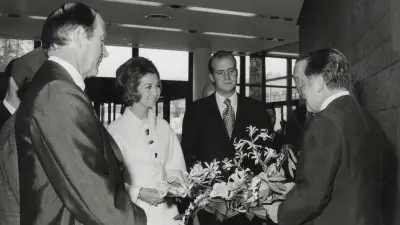
First factory in Spain
In 1967, the acquisition of a 50 percent holding in Constructora Eléctrica Española S.A., a subsidiary of the car and truck manufacturer Barreiros, marked a significant step for Bosch. This move enabled Bosch to manufacture in Spain for the first time. The company in which it acquired a stake was based in Madrid, and had already been producing alternators, starters, ignition systems, electricity generators, and eddy-current brakes for many years. The joint venture, which was now renamed Robert Bosch Española S.A., also supplied the Spanish market with automotive electric components.
One year later — in 1968 — Bosch acquired Electro Diesel S.A. in Madrid, which had taken on responsibility for selling both products imported from Germany and those manufactured in Spain. The sales and customer service organization, now operating under the new name Robert Bosch Comercial Española S.A., had a wide-ranging portfolio, including electrical and electronic automotive equipment for gasoline and diesel engines, measuring and testing technology, electrical and pneumatic tools, and Blaupunkt, Eisemann, and Junkers brand products.
From FEMSA to Bosch
Bosch set a further important milestone with the acquisition of a majority holding in Fábrica Española Magnetos S.A. (FEMSA) in 1978. At this time, the Madrid factory was the leading manufacturer of automotive electric equipment in Spain, producing a comprehensive range of products at nine plants. In addition, FEMSA also operated smaller manufacturing companies in Portugal, Chile, Colombia, and Venezuela and sales companies in France, Italy, and the United States. Soon after the takeover, however, FEMSA was faced with new challenges as the Spanish government abolished its high import duties, and production costs rose as a result of inflation, wage increases, and outdated production practices.
To make matters worse, some of the products produced by FEMSA did not meet the high quality standards at Bosch. To improve the competitiveness of FEMSA in the long term, the Stuttgart-based company introduced a restructuring process that spanned several years. Its own technologies were launched and the Spanish plants were integrated into the worldwide manufacturing and logistics network of Bosch.
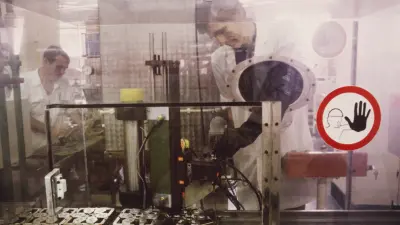
Three become one
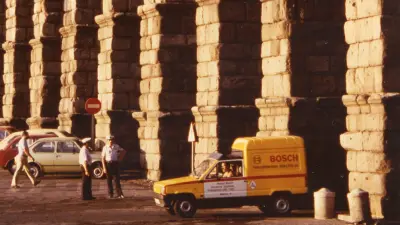
At the end of the 1970s, Bosch was represented by three companies in Spain: Robert Bosch Española S.A., with its manufacturing plants in Madrid and Alcalá des Henares, the Madrid-based sales company Robert Bosch Comercial Española S.A., which had a further sales office in Barcelona, and FEMSA.
Once FEMSA products had been brought up to Bosch standards, the manufacturing companies in Spain were merged in 1985 to form one company under the FEMSA name. The Bosch and FEMSA brands were retained. Finally, five years later, Bosch merged FEMSA with the Madrid-based sales company Robert Bosch Comercial Española S.A. to create a single company — Robert Bosch S.A.
These developments were prompted by the country’s transformation into a democratic, advanced industrialized nation and its accession to the European Union in 1986.
All business sectors represented
In 1983, the difficult economic situation of the Spanish regional subsidiaries gave rise to a sustained restructuring process that saw the affiliated companies FEMSA and Robert Bosch Española S.A. channel their manufacturing into cost-effective locations. This meant cutting jobs and involved generally switching manufacturing to Bosch products and Bosch manufacturing technologies and integrating the locations into the Bosch global production network.
This enabled Bosch to achieve a significant increase in exports for its products manufactured in Spain under the difficult economic conditions there during that period and to stabilize its economic situation in Spain long-term. The restructuring process resulted in the merger in 1990 of FEMSA and Robert Bosch Comercial Española S.A. to form a single company with the name Robert Bosch S.A. (now Robert Bosch España S.L.U.).
Restructuring
The successful restructuring process went hand-in-hand with the further expansion of the company’s activities on the Iberian Peninsula. For example, from 1984 on, the household appliance business was represented in Madrid by Bosch y Siemens Electrodomésticos, a sales company of Munich-based BSH Bosch und Siemens Hausgeräte GmbH. Five years later, BSH acquired a majority holding in Balay and Safel, a major Spanish manufacturer of household appliances.
The Security Systems division opened the Bosch Communication Centers in Vigo and Barcelona, which are responsible for customer services to its major service provider clients, in 2003 and 2009.
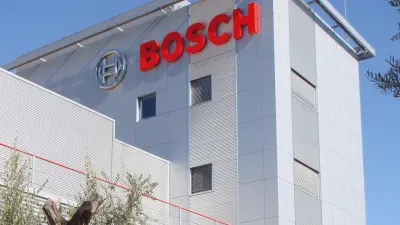
Bosch today in Spain
Bosch has today 20 locations in the country and currently employs some 8,000 associates in Spain.
Author: Dietrich Kuhlgatz
